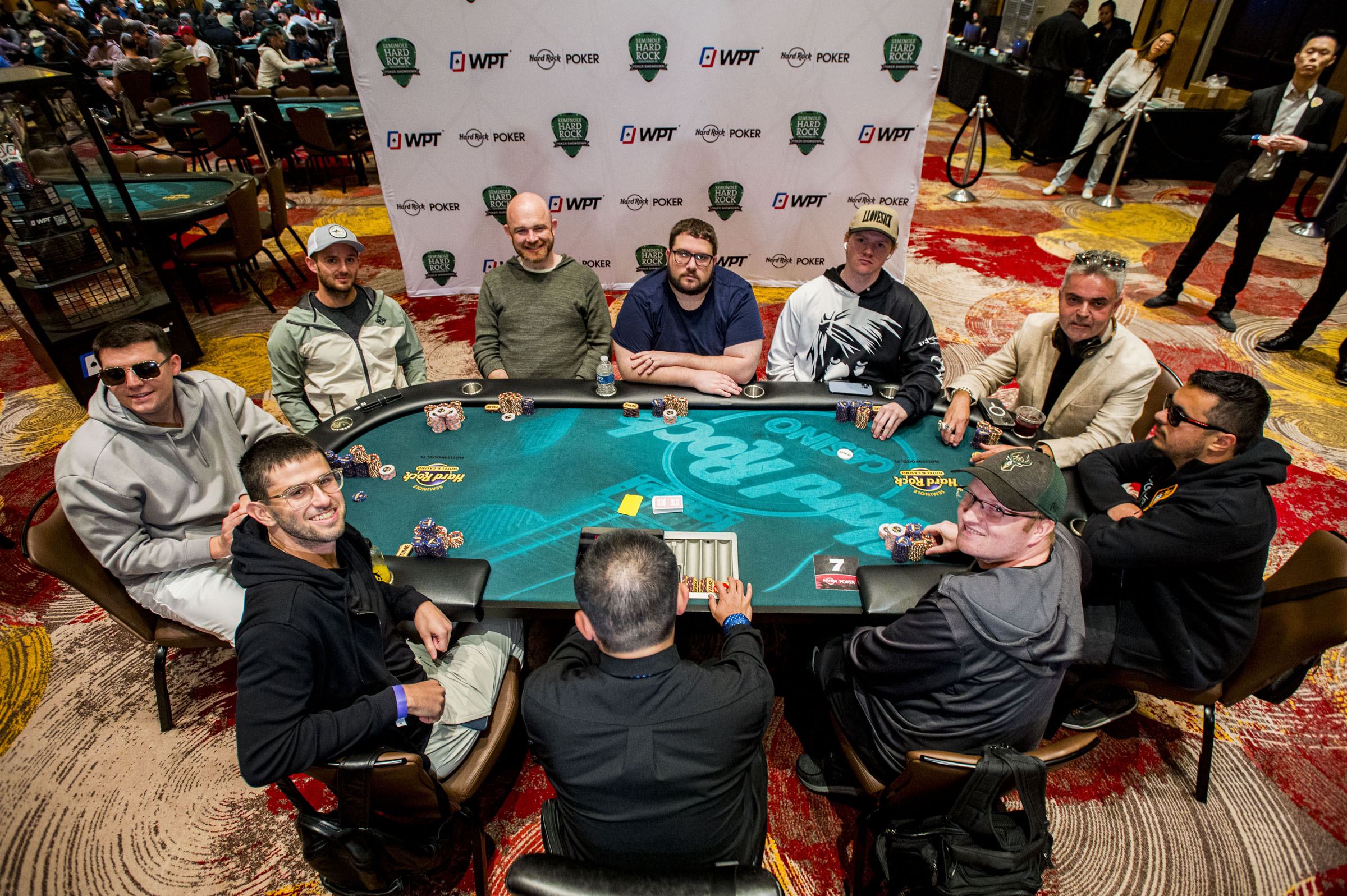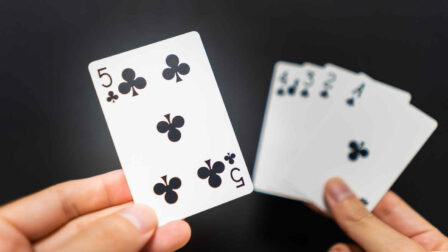Multiway Pots in PLO – Do You Know How to Get the Most Out of It?

5 minutes
Last Updated: September 21, 2021
Pot Limit Omaha is an exciting, action-filled game. Although it shares some similarities with No Limit Texas Hold’em, PLO is an entirely different game that comes with its own set of challenges and opportunities.
Even if you’re just starting out with PLO, you’ve probably heard the saying that this is a “flop game.” What this means is that the action rarely concludes before the flop and that you’ll often have to navigate flops, turns, and rivers to win the pot.
Another important fact that ties right into the previous one is that you’ll often be against multiple opponents. While most pots in Hold’em are played heads up, it’s quite common for PLO hands to go multiway.
Playing against two, three, or four other players is much more challenging than playing against just one.
There are more factors to consider, and it's hard to know what the best course of action is.
So, in this article, I’ll try to share some useful tips and tricks for playing multiway pots in PLO for the best results. It won’t solve all of your problems, but it will give you some valuable insights to fall back on the next time you play the great game of Pot Limit Omaha.
Avoid Multiway Pots Out of Position
It’s very tempting to try and see as many flops as possible in PLO, especially if you’re a beginner. Almost every hand can flop big, and if you get the right flop, you can stack someone. But if you want to improve, you should remove yourself from this way of thinking.
The first thing to keep in mind is that you should almost never play multiway pots out of position. Even if you find yourself at a table where there is a lot of limping, and you know you'll be able to see a lot of flops, practice some discipline and fold your weak and mediocre hands from early positions.

When the action goes multiway, and you aren't in position, it will be too hard to play the hand correctly. Unless you flop the nuts with nut redraws, you’ll have no idea how to proceed. With the action pending behind you, it will be hard to make the right choice, and you’ll often find yourself tangled in massive pots with mediocre hands, asking yourself how you got there in the first place.
So, the first thing to think about when considering multiway pots in PLO is position. When you’re on the button, go ahead and get involved as much as you like if the price is right. But from early positions, stick to a good hand selection and save yourself a lot of money and headache.
Look for the Nuts
Whenever you don't have the nuts in PLO and your opponent is forcing the action, it's a good idea to pause and think. Even in heads-up pots, the second nut flush won't be good enough to play for stacks if you're fairly deep and your opponent seems very happy to pile the chips in.
But in multiway pots, you have to be ten times as careful.
If someone bets and another player calls or raises, this is usually your signal to get out of dodge. If you have a good draw to the nuts and are closing the action, you can make the call, but don’t overplay your strong but non-nut hands.
For example, you’re holding 7c 8c 9s 10s, a good PLO starting hand. The flop comes 9 J Q with two hearts. One opponent bets the pot, and the other one calls. The action gets back to you, and there is another player left to act.
While it seems tempting to call as you have the second nuts, it really makes little sense to do so. First of all, with three other opponents in the hand, someone could easily have the nuts already and have you dead to a chop at best.
Secondly, there are so many bad turn cards that will make it even harder to continue with the hand.
While you definitely wouldn't want to fold this hand to a single bet in a heads-up pot, it's a pretty trivial fold in a multiway pot. Calling with the hope that you aren't beat already and that you'll also get the perfect runout is a big ask.
Play Your Big Draws Aggressively
Just like you don’t want to make calls with mediocre hands, you don’t want to do it with your big draws, either. In multiway pots, things can easily get out of control, and you can get yourself in a really confusing position by playing passively.
When you flop a big draw, like a big straight wrap and a nut flush draw, you want to be the one running the show.
If there is a continuation bet and call in front of you, you’ll want to make a big raise and put your opponents to the test. Even if they have a big hand right now, they know they’ll have to dodge many cards to win the pot. That alone is enough to make some less experienced players lay their hand down.
With a big draw, you want to get as much money as possible in the middle while you have the most equity.
If they fold, that’s good. If you get called in one, two, or even three places, that’s fine as well. You will need to improve, but when you do, you’ll win a massive pot.

Playing a hand in this way may seem fairly transparent, and you’re not wrong. If your opponents hold made hands like sets and two pair, they’ll pretty much know what you have, but they can’t do much about it. Plus, in multiway pots, they often have to worry about what the player behind them will do, so putting the maximum pressure on with big draws is usually the right way to go.
Multiway PLO Pots Summary
Hopefully, you’ll find these simple tips for playing multiway PLO pots useful. Try to remember them and apply them during your next session, and you’re likely to see some immediate benefits.
Pot Limit Omaha is a complex game with many layers, so one article won’t make you a master. Still, every tip you pick up along the way and every new strategy you implement will get you closer to where you want to be.
Multiway pots represent a very significant segment of PLO, so you’ll need to work on them. If nothing else, this article should give you the push in the right direction, highlighting the kind of things you should be thinking about in these spots.


















